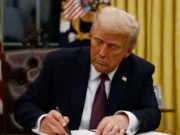It has emerged that the Fourth Estate, a public interest and accountability investigative project of the Media Foundation for West Africa (MFWA) has gotten some of its facts wrong in a recent publication on a contract between the Ghana Revenue Authority (GRA) and revenue assurance and audit firm, Strategic Mobilisation Ghana Limited (SML).
This is because contrary to a report by the Fourth Estate that the SML, has a 10-year contract with the GRA, a cursory look at the letter from the Public Procurement Authority (PPA) approving the agreement shows clearly that the deal is for a five-year period.
The Fourth Estate had claimed that, “The investigation also uncovered that at a time players in the downstream petroleum sector were questioning the relevance of SML’s involvement, the Minister of Finance, Ken Ofori Atta, initiated a more outrageous deal that would entitle the company to over $100 million every year for the next 10 years.”
However, the PPA letter dated 27th September, 2023 authorising the sole sourced contract was explicit that the deal was for five years.
“At the 46th Board Meeting of the 5th PPA Board held on Wednesday, 20th September 2023, the Board granted approval to Ghana Revenue Authority (GRA), to use the single source procurement method, in accordance with section 40 (1) (d) of Act 663 as amended, to re-engage the services of Messrs. Strategic Mobilisation Ghana Limited (SML) for the expansion of scope of work to include Upstream petroleum products and minerals and metals value chain audit, verification and monitoring for a during of five years at a service fee of US$0.75 per barrel of petroleum projects per month and 0.75% of the total volume value mineral resources monitored by SML-NOVA exported per month,” the letter stated in part.
SML has been providing revenue assurance services to the Ghana Revenue Authority (GRA) since 2020. Its work, which covers the petroleum downstream sector, ensures that illegalities that result in under-declarations and underreporting of quantities of petroleum products leading to revenue losses to the state are curtailed.
This has put the company on a collision course with cartels within the downstream petroleum sector that hitherto benefitted from such illegalities.









































